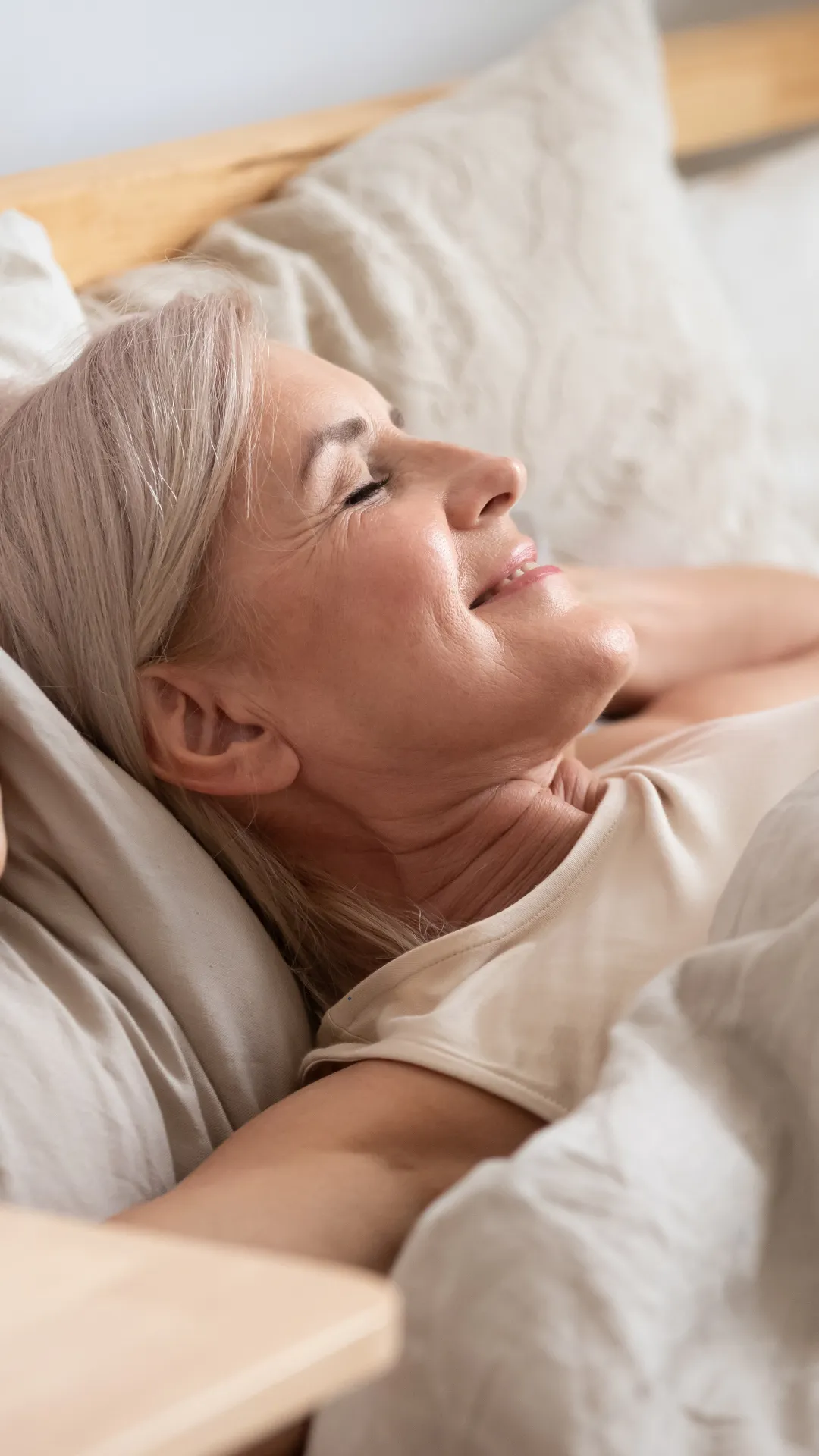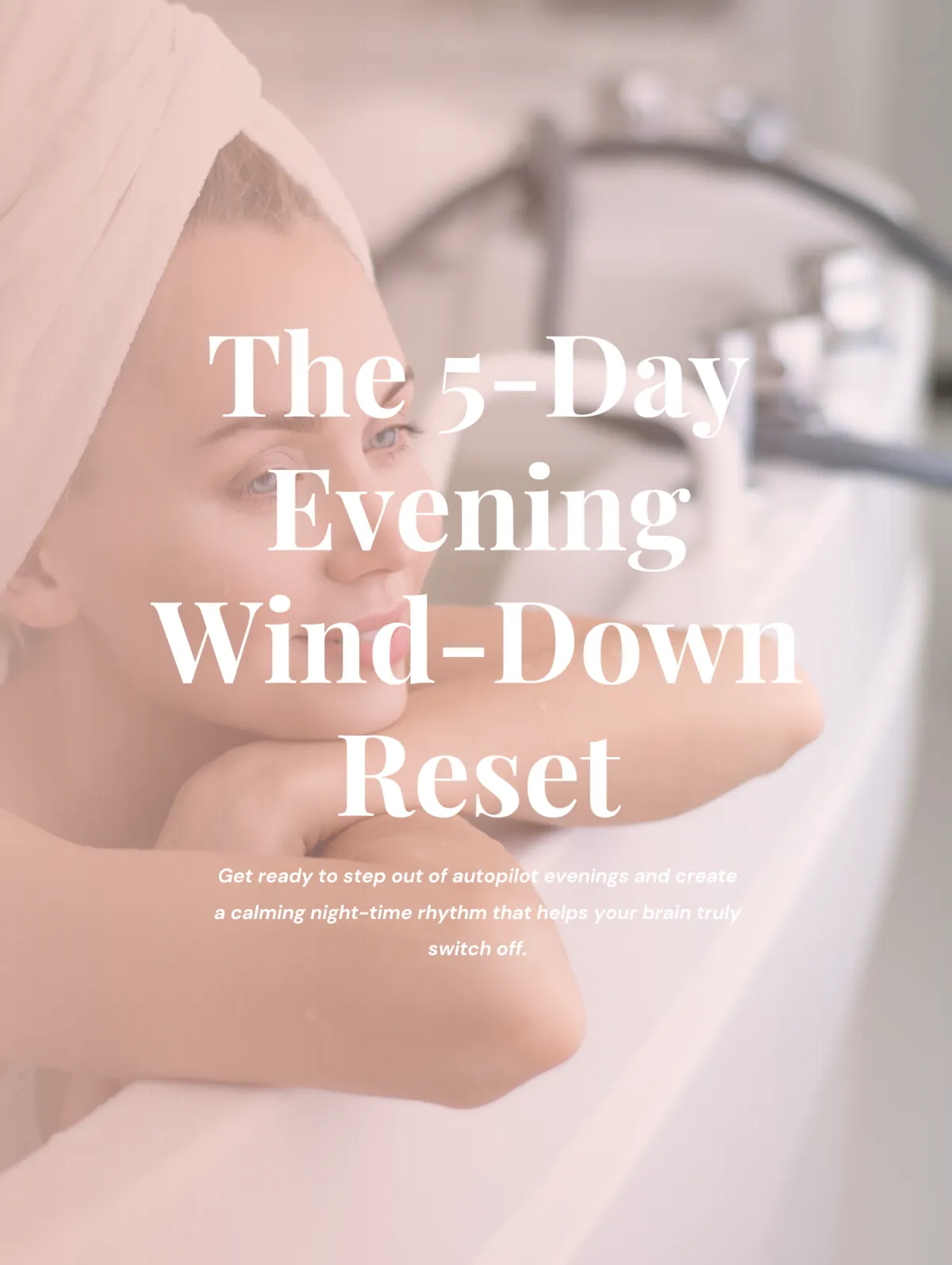
Why a Good Day's Waking Is the Secret to a Good Night's Sleep
"A good night's sleep is about a good day's waking. It's a lifestyle issue." Dr Rubin Naiman PhD, Fellow in the American Academy of Sleep Medicine and author of Healing Night.
As November arrives with its shorter days and longer to-do lists, you might find yourself lying awake at night despite being exhausted. You've tried all the usual advice - keeping your bedroom cool, avoiding screens before bed, maybe even investing in blackout curtains. Yet sleep still eludes you. But there's one counterintuitive truth that might change everything: your sleep problems don't begin when you go to bed - they begin when you wake up.
Getting restorative sleep isn't just about what you do in the hour before bed. As Dr. Rubin Naiman, psychologist and Fellow in the American Academy of Sleep Medicine, puts it: "A good night's sleep is about a good day's waking. It's a lifestyle issue."
This November, instead of adding more tasks to your list, what if you could shift just a few daytime habits and transform both your sleep and your mental clarity?
Your Body's Internal Clock
Your body runs on a sophisticated internal clock called the circadian rhythm - your natural day-night cycle. This isn't just about feeling sleepy at night; it's an intricate dance of hormones, body temperature, and brain chemistry that prepares you for both waking and sleeping.
The challenge is that most sleep advice focuses almost entirely on bedtime routines: dim the lights, avoid screens, keep your bedroom cool. These are helpful, certainly. But they're only half the equation. If you haven't set up your circadian rhythm properly during the day, no amount of evening optimisation will give you the restorative sleep your brain needs.
Think of it this way: you can't expect your body to shift into sleep mode at 10pm if you've spent the entire day giving it confusing signals about whether it's day or night. Your daytime habits are the foundation upon which your nighttime rest is built.
Morning Daylight
Here's where the transformation begins, and it's simpler than you might think: get outside early in the morning.
Good quality daylight, especially within the first few hours of waking, is the most powerful tool you have for setting your circadian rhythm. When light hits your eyes in the morning, it triggers the release of cortisol - yes, the stress hormone, but in this context, it's exactly what you need. Morning cortisol signals to your brain: "It's time to be awake, alert, and focused."
This morning cortisol surge does something crucial: it sets the timer for melatonin production later in the evening. When you're fully awake during the day, your body can naturally release melatonin at night, helping you feel genuinely sleepy at bedtime.
But here's what most people don't realise about light: the quality matters enormously.
Direct sunlight on a summer day in London can reach 70,000 lux (lux is how we measure light intensity). Even on a cloudy autumn morning, you'll still get around 1,000 lux outdoors. Compare that to your office, which typically maxes out at 500 lux, or your home, which might only provide 300 lux. Even on the greyest November morning, the light outside is significantly more powerful than anything indoors.
This is why getting outside for at least 20 minutes early in the day - even when it's cloudy - makes such a profound difference. You simply cannot replicate this effect by sitting near a window or turning up your indoor lights.
As Dr. Naiman observes: "Despite evidence suggesting that sunlight is naturally stimulating, emotionally uplifting, and potentially healing, we spend the bulk of our waking days indoors."
If you struggle to fall asleep at night, this is your starting point.
The Rhythm Of Your Day Matters More Than You Think
Beyond that crucial morning light exposure, the consistency and timing of your daily activities play a vital role in supporting quality sleep as well.
Consistent Wake Times Are Non-Negotiable
Try going to bed at the same time every day, and more importantly, get up at the same time every day - even on weekends. When you constantly shift your sleeping schedule, you create a phenomenon similar to jet lag, except you haven't even left your time zone. Your body never fully knows what time it should be releasing which hormones, leading to that foggy, disoriented feeling that many of us accept as normal.
If you want to sleep longer, go to bed earlier rather than waking up later. This maintains your body's rhythm while giving you the extra rest you need.
Strategic Exercise Timing
Exercise is excellent for sleep, but timing matters. Aim for at least 30 minutes of movement during the day, but avoid vigorous exercise within four hours of bedtime. Evening exercise can raise your body temperature and alertness just when you want them to decrease, making it harder to fall asleep.
Morning or afternoon exercise, on the other hand, can improve both the quality and duration of your sleep. It also gives you an excellent opportunity to combine two beneficial habits: exercise outdoors in natural light, and you're hitting two sleep-supporting targets at once.
Avoid Daytime Naps
If you struggle to fall asleep at night, resist the temptation to nap during the day. While a short nap might feel restorative in the moment, it compounds nighttime sleep-cycle disruption, making it even harder to fall asleep when you actually want to.
Why This Matters for Your Brain
You might be wondering: why focus so much on sleep? Is it really that important?
The answer is unequivocally yes - especially for brain health in midlife.
People who consistently get fewer than seven hours of sleep have measurably less blood flow to the brain. This isn't just about feeling tired; it's about your brain's ability to function optimally. Reduced blood flow lowers your ability to handle stress, increases irritability, and makes it harder to concentrate. It impacts your capacity to process information, learn new things, and organise and store memories.
Sleep deprivation also affects your decision-making (making you more likely to choose processed foods), slows your metabolism, weakens your immune system, and increases your risk of heart disease and stroke. An average of only six hours of sleep per night increases your risk of viral infection by 50%.
However, the good news is that studies show that effectively improving the quality of your sleep can have a positive impact on memory, immunity and brain function. You have the power to change this trajectory.
The Paradox of Sleep
November is when we're busiest, when demands pile up, when sleep feels like a luxury we can't afford. But it's also when we most need the mental clarity, emotional resilience, and physical energy that only good sleep provides.
The counterintuitive truth is that prioritising your daytime habits to support better sleep doesn't cost you productive hours - it gives you more of them. When your brain is properly rested, you show up to your day sharper, more creative, and more efficient.
You don't need to work more hours; you need to work with your biology instead of against it.
Your Move
You have more control over your sleep than you might think - but that control starts when you open your eyes in the morning, not when you close them at night.
This November, I invite you to choose just one change. Start with morning light if you're not sure where to begin. Commit to it for one week. Notice what shifts - not just in your sleep, but in your mood, your focus, your resilience.
A good night's sleep truly is about a good day's waking.
Remember: If you snore loudly, stop breathing at night, or feel chronically tired during the day despite getting 7-8 hours in bed, speak with your doctor about testing for sleep apnoea. This condition significantly impacts brain health and requires treatment. Find out more about it here: Why Sleep Apnoea Matters for Your Brain Health - And What You Can Do About It






